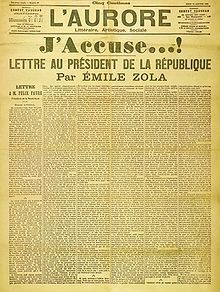U.S. Appeals Court Deals Major Blow To Net Neutrality
By Reuters
A U.S. appeals court on Tuesday struck down the government’s latest effort to require internet providers to treat all traffic the same and give consumers equal access to lawful content, a policy that supporters call net neutrality.
The Federal Communications Commission did not have the legal authority to enact the 2011 regulations, which were challenged in a lawsuit brought by Verizon Communications Inc, the U.S. Court of Appeals for the District of Columbia Circuit said in its ruling. [..]
During the oral argument in September, Verizon’s lawyer said the regulations violated the company’s right to free speech and stripped control of what its networks transmit and how.
The eventual outcome of the dispute may determine whether internet providers can restrict some content by, for instance, blocking or slowing down access to particular sites or charging websites to deliver their content faster.
As Expected, Court Strikes Down FCC’s Net Neutrality Rules: Now What?
By Mike Masnick, Techdirt
Basically, this is exactly what lots of us said at the start of this whole process. I’ve seen a bunch of reports overreacting to this today, from people saying that it’s “the death of the internet.” It’s not. There are problems on both sides here. The telcos absolutely do want to abuse things to effectively double charge both sides. And that could clearly create significant issues with the basic end-to-end nature of the internet.
However, on the flip side, we should be equally concerned about the FCC overstepping its bounds and mandate in regulating the internet. Because that opens up the opportunity for the FCC to regulate all sorts of aspects of the internet in dangerous ways. So, this ruling is both good and bad. It stops the FCC from overstepping its bounds… but opens up the opportunity for the telcos to sweep in and try to upset the basic concepts of the internet. It’s what happens now that becomes interesting. The court does leave open the possibility that the FCC could use other aspects of its mandate to establish net neutrality rules — where it has a much more firm legal footing. In other words, the court is telling the FCC basically: you can establish net neutrality rules if you do it correctly.
Circuit Court Of Appeals Strikes Down FCC’s Open Internet Order, Net Neutrality Threatened
By Darrell Etherington, TechCrunch
Media watchdog and advocacy agency Free Press released the following statement about the decision via President and CEO Craig Aaron, condemning it while also acknowledging that the Open Internet Order probably wasn’t the best possible solution for enforcing net neutrality:
We’re disappointed that the court came to this conclusion. Its ruling means that Internet users will be pitted against the biggest phone and cable companies – and in the absence of any oversight, these companies can now block and discriminate against their customers’ communications at will.
The compromised Open Internet Order struck down today left much to be desired, but it was a step toward maintaining Internet users’ freedom to go where they wanted, when they wanted, and communicate freely online. Now, just as Verizon promised it would in court, the biggest broadband providers will race to turn the open and vibrant Web into something that looks like cable TV. They’ll establish fast lanes for the few giant companies that can afford to pay exorbitant tolls and reserve the slow lanes for everyone else.
The FCC – under the leadership of former Chairman Julius Genachowski – made a grave mistake when it failed to ground its open Internet rules on solid legal footing. Internet users will pay dearly for the previous chairman’s lack of political will. That’s why we need to fix the problems the agency could have avoided in the first place.
New FCC Chairman Tom Wheeler recently stated that the FCC must have the ability to protect broadband users and preserve the Internet’s fundamental open architecture. In order to do that, he must act quickly to restore reassert the FCC’s clear authority over our nation’s communications infrastructure. The agency must follow its statutory mandate to make broadband communications networks open, accessible, reliable and affordable for everyone.
We look forward to working with Chairman Wheeler and the rest of the Commission to protect and preserve real Net Neutrality.
Take Action: Sign the Petition from Netroots Action
A federal appeals court just sided with Verizon and against you, against us, against the Internet.
If this ruling stands, the Internet as we know it will die.
Forget free and open access. Picture a system like cable TV with corporations charging for different levels of access, and blocking access to information they don’t favor!
The Internet is our tool for circumventing the corporate media, for reaching each other with a bit of truth and accuracy, for organizing each other into collective action. We cannot let this one go.
Sign this petition to the FCC, Congress, and the White House now!

 On this day in 1761, the
On this day in 1761, the  The Third Battle of Panipat saw an enormous number of casualties and deaths in a single day of battle. It was the last major battle between indigenous South Asian military powers, until the creation of
The Third Battle of Panipat saw an enormous number of casualties and deaths in a single day of battle. It was the last major battle between indigenous South Asian military powers, until the creation of  The bill to fast track the controversial Trans-Pacific Partnership Agreement was
The bill to fast track the controversial Trans-Pacific Partnership Agreement was  On this day in 1898, French writer
On this day in 1898, French writer  From Earth Insight by Nafeez Ahmed, hostsed by the Gardian,
From Earth Insight by Nafeez Ahmed, hostsed by the Gardian, 
Recent Comments